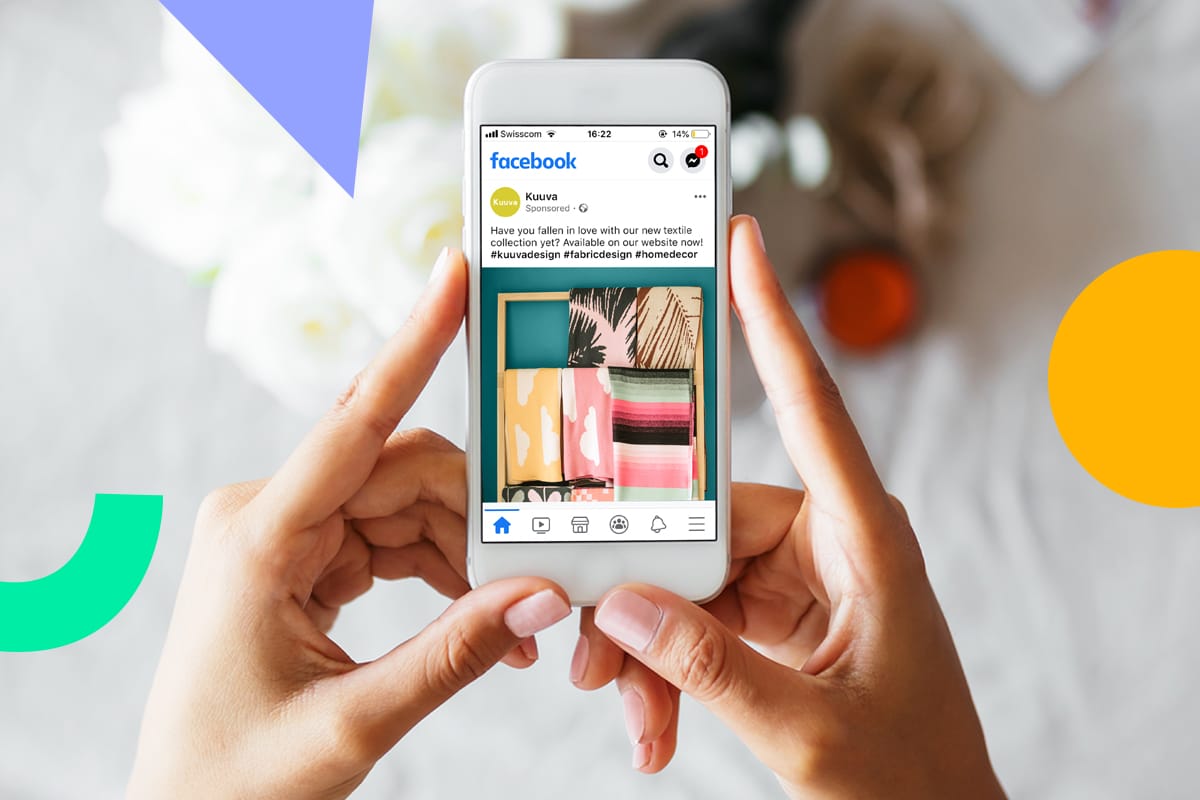Facebook continues to be a cornerstone for small businesses despite the rise of newer platforms. With over 2.9 billion monthly active users, Facebook offers unparalleled opportunities for businesses to connect with audiences, build communities, and drive revenue.

However, the platform’s complexity and frequent algorithm changes can make it challenging for small business owners to fully utilize its potential. This guide explores how small businesses can effectively leverage Facebook’s tools and features to achieve growth and success in 2024.
The Role of Facebook in Modern Small Business Marketing
Facebook remains a vital platform for businesses of all sizes, but its versatility makes it particularly beneficial for small businesses. From hyper-targeted advertising to fostering direct communication with customers, Facebook offers tools that can be customized to fit any business model. However, the key to success lies in adapting to the platform’s evolving features and staying updated on best practices.
For small businesses, Facebook can serve as:
- A Community Hub: Groups and pages allow businesses to connect directly with customers and build loyalty.
- An Advertising Powerhouse: Advanced targeting options make it easier to reach specific demographics.
- A Sales Platform: Marketplace and Shops provide opportunities to sell products directly to customers.
By understanding and strategically using these features, small business owners can maximize their return on investment and strengthen their online presence.
1. Leverage Facebook Groups for Community Engagement
Facebook Groups offer a unique opportunity to foster relationships and build a sense of community among your audience. Unlike pages, groups are more interactive, allowing members to share posts, ask questions, and participate in discussions.
How to Use Groups Effectively:
- Create a Niche Community: For example, a bakery could create a group for baking enthusiasts to share recipes and tips.
- Share Exclusive Content: Offer group members access to special promotions, behind-the-scenes content, or early announcements.
- Engage Actively: Respond to comments, ask questions, and facilitate discussions to keep the group lively.
Groups work exceptionally well for businesses that thrive on customer loyalty and word-of-mouth marketing. They are also a great way to gain insights into your customers’ preferences and needs.
2. Optimize Facebook Ads for Better ROI
Facebook’s advertising platform is one of the most powerful tools for small businesses. With its advanced targeting capabilities, you can ensure your ads reach the right people at the right time.
Tips for Effective Facebook Ads:
- Define Clear Objectives: Determine if your goal is brand awareness, lead generation, or direct sales.
- Use Eye-Catching Visuals: High-quality images and videos can significantly boost ad performance.
- Segment Your Audience: Create separate ads for different demographics to tailor your messaging.
- Test and Refine: Use A/B testing to compare ad performance and optimize your strategy.
For budget-conscious small businesses, Facebook Ads provide measurable results, ensuring every dollar spent delivers value.
3. Sell Directly Through Facebook Marketplace
Facebook Marketplace has become a go-to platform for local buyers and sellers. For small businesses, it offers a simple and effective way to showcase products to a nearby audience.
How to Maximize Marketplace:
- List Regularly: Keep your inventory fresh with updated listings.
- Use Detailed Descriptions: Include all relevant details about your products to reduce inquiries and improve trust.
- Highlight Discounts: Offering exclusive deals or bundles can make your listings more appealing.
Marketplace is particularly beneficial for businesses selling physical products, such as furniture, clothing, or handmade goods.
4. Create a Seamless Shopping Experience with Facebook Shops
Facebook Shops allow small businesses to set up a fully integrated online store within the platform. This feature simplifies the shopping journey, enabling customers to browse and buy without leaving Facebook.
Setting Up Your Shop:
- Organize Your Catalog: Group products into collections to make navigation easy.
- Add High-Quality Images: Visuals are crucial for enticing customers to make a purchase.
- Enable Cross-Platform Selling: Connect your Facebook Shop to Instagram for expanded reach.
Facebook Shops can be a game-changer for businesses looking to capitalize on social commerce trends.
5. Enhance Customer Interaction with Messenger
Facebook Messenger is a powerful tool for direct communication. Whether answering inquiries, sending updates, or providing support, Messenger allows businesses to engage customers on a personal level.
Best Practices:
- Automate Responses: Set up quick replies for FAQs to save time.
- Use Personalization: Address customers by name and tailor messages based on their interests.
- Integrate Chatbots: Chatbots can handle repetitive tasks, freeing up time for more complex customer interactions.
Messenger helps build trust and provides an excellent opportunity for upselling or nurturing leads.

6. Consistently Post Engaging Content
Regularly posting engaging content is essential for maintaining visibility on Facebook. Quality content not only keeps your audience interested but also improves organic reach.
Content Ideas:
- Educational Posts: Share tips, tutorials, or industry insights.
- Behind-the-Scenes Content: Give followers a glimpse into your daily operations.
- Customer Spotlights: Highlight testimonials or user-generated content.
Consistency is key. Posting 3–5 times per week ensures your audience stays connected with your brand.
7. Tap Into the Power of Facebook Live
Live streaming is an excellent way to engage with your audience in real time. Facebook Live lets businesses showcase products, host Q&A sessions, or share events with followers.
Live Streaming Tips:
- Promote Your Stream: Announce your live session in advance to maximize attendance.
- Engage During the Broadcast: Answer questions and interact with viewers to keep them engaged.
- Repurpose Content: Save and edit your live videos for future use.
Live videos receive higher engagement rates than standard posts, making them a valuable tool for growing your audience.
8. Analyze Performance with Facebook Insights
Facebook Insights provides in-depth analytics to help small businesses measure the success of their efforts. By tracking key metrics, you can identify what’s working and where adjustments are needed.
Key Metrics to Monitor:
- Post Reach and Impressions: Gauge how far your content is spreading.
- Engagement Rates: Measure likes, comments, shares, and clicks.
- Demographics: Understand who your audience is and tailor your content accordingly.
Regularly reviewing analytics ensures your strategy remains data-driven and effective.
9. Collaborate with Influencers
Partnering with local or niche influencers can amplify your reach on Facebook. Influencers bring credibility and introduce your brand to their established followers.
Steps to Collaborate:
- Identify Relevant Influencers: Look for influencers who align with your brand values.
- Offer Value: Provide free products, discounts, or commissions in exchange for promotion.
- Track Results: Use unique discount codes or referral links to measure the success of the partnership.
Collaborating with influencers can help small businesses tap into new audiences and build trust quickly.
10. Stay Updated with Facebook Trends and Features
Facebook frequently updates its algorithms and introduces new features. Staying informed ensures you’re always leveraging the platform’s latest capabilities.
How to Stay Updated:
- Follow Facebook Business Blog: Get insights straight from the platform.
- Join Industry Groups: Engage with other small business owners to share tips and experiences.
- Experiment: Test new features to see how they can benefit your business.
Adapting to changes keeps your strategy fresh and relevant in a competitive digital landscape. You can also check our topics on:-
- Maximizing ROI: Effective Ad Strategies for Social Media Campaigns
- Social Media Metrics That Matter: What to Track in 2024
- Facebook Marketplace for Small Businesses: New Features to Watch
- How to Create Creative Images for Facebook Instagram Stories
- How to Make Your Facebook Profile Attractive
- How to Create Professional Cover Photos for Social Media
- How to Increase Facebook Likes and Reach for Your Profile
- The Complete Guide to Facebook Advertising in 2024: Tips and Tricks
- Facebook Live vs. Instagram Live: Which Platform is Best for Your Business?
- Tips for Creating Viral Content on TikTok, Instagram, and Facebook
- 10 Little-Known Instagram Features You Should Be Using
- Instagram’s New Subscription Model: How Creators Are Monetizing Exclusive Content
- 10 Little-Known Instagram Features You Should Be Using
- 10 Proven Strategies to Grow Your Social Media Following as an Influencer
- A Guide to Creating Shareable Visual Content for Social Media

Final Thoughts
Facebook remains an invaluable tool for small businesses, offering opportunities for community building, direct sales, and targeted advertising.
Small business owners can create impactful campaigns that drive engagement and revenue by leveraging features like Groups, Marketplace, Shops, and Ads. Consistent effort, strategic planning, and staying informed about platform updates will ensure Facebook continues to deliver results in 2024 and beyond.



